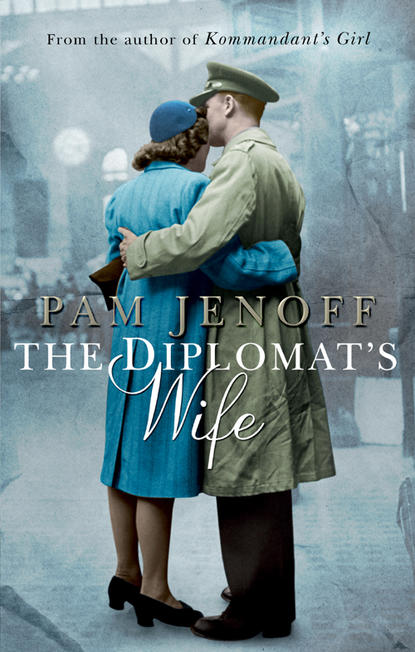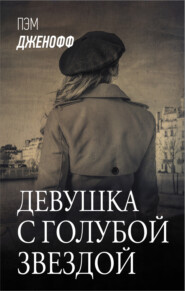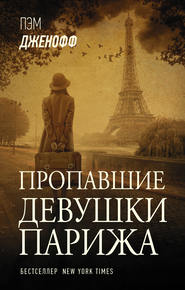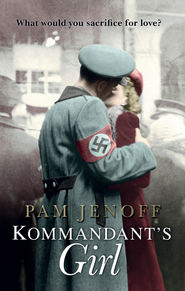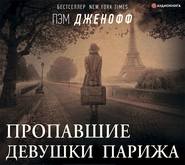По всем вопросам обращайтесь на: info@litportal.ru
(©) 2003-2025.
✖
The Diplomat's Wife
Настройки чтения
Размер шрифта
Высота строк
Поля
“I mean, really,” I persist. “They’re supposed to be in the middle of a war, but they’re safe and warm in their own home. Yet one sister is complaining that she has to teach …”
“Meg,” Rose clarifies.
“And one of the others is upset because she has to sit in a big house and read to her aunt.”
“That’s Jo. But, Marta,” Rose says, “they suffered from the war, too, in their own way. I mean, they didn’t have a lot to eat and their father was off fighting …”
“I think that the American Civil War was very different for people who didn’t live close to the battlefields,” Dava offers slowly in English, teaching. “Not like here.” Battlefields indeed. Here our lives were the battlefields. “War can affect people in many ways,” she adds. She presses her lips together, a faraway expression in her eyes.
Rose raises the book. “Do you want me to keep going?”
“Yes,” Dava replies, patting Rose’s hand. “You’re doing great.”
Rose continues reading aloud, but I do not try to follow along. I have been listening for nearly an hour and my head aches from the constant effort of translating each word. Instead, I look up. It is only seven o’clock. Usually, the August sky would still be bright for more than another hour, but the sun has dropped behind thick, gray-centered clouds. I can barely see the hooked peak of the Untersberg through the fog.
I inhale deeply, savoring the sweet honeysuckle smell from the gardens that line the edge of the terrace. It has been more than two months since my arrival at the camp. My health has improved steadily since then, much more quickly, Dava said, than the doctors expected. The incision where my wound had been is nearly healed. It barely aches at all anymore, except when it rains.
“Marta,” Rose says. I turn to find she is holding out the book to me. “Do you want to try a line or two?”
I hesitate, running my hand along the warm stone bench. Earlier, Dava stopped Rose and let me try one of the easier passages, but as I struggled through the first few words, it was obvious that the text was still too difficult for me. “No, thanks.” Rose is nearly fluent in English, owing to summers spent with her aunt in London as a child. I, on the other hand, have been taking the English classes offered each morning in the palace library with some of the other camp residents. I’ve been able to pick up the spoken language fairly easily, but I still struggle to read much beyond children’s books. Dava helps me whenever she has the time. Her language skills are remarkable, owing, she told us once, to the fact that her father was a translator. She was schooled in English and French, in addition to her native Russian and Yiddish, and the German she learned growing up in Austria.
As Rose resumes reading, I turn back toward the palace, awed as ever at its size and grandeur. Schloss Leopoldskron is three stories high, with two massive wings jutting out on either side. Large paned windows dot the light-gray stone facade. The ground floor, I discovered when Dava let me get out of bed a few days after my arrival, is taken up by our ward, and a second ward, where the ballroom had once been, houses male patients. The two are separated by a grand foyer with an enormous crystal chandelier hanging from its high ceiling. Two curved marble staircases lead from the foyer to the first floor, where the library and a small chapel are located. The second floor, where the camp administrative offices are located, is off-limits to residents.
Rose pauses reading at the end of a chapter. “We should stop now,” Dava says. “I don’t want you overdoing things.”
Concerned, I study Rose’s face. Her complexion is pale and dark circles seem to have formed suddenly under her eyes. Rose has not had as easy of a recovery as me. The morning after her arrival, she did not awaken again. When I asked Dava, she told me that Rose was nineteen and from Amsterdam. Though she was only half Jewish, she had been interned in several camps, most recently a camp in Czechoslovakia called Terezin. I remarked that it must have been a really awful camp to make Rose so sick, but Dava replied it actually was not as bad as some. Rather, she explained, Rose had a blood disorder that had been worsened by the poor living conditions in the camp. I didn’t know exactly what a blood disorder was, but it sounded very serious. I watched as she struggled in her sleep over the next several days, keeping vigil as much as I could and informing the nurses whenever she awoke for a few minutes so they could give her water and medicine. Dava told me to concentrate on my own recovery, that Rose was not my problem. But Rose had to get better—I had promised her on the night she arrived that things would be all right.
Then one morning I awoke to find her lying on her side, staring at me with bright violet eyes. “Hello,” she said.
“Hi.” I sat up. “I’m Marta.”
“I know. I remember.”
Rose stayed awake for most of the day, but her condition improved little. On good days like today, she is able to sit in a wheelchair for short periods of time. But she still tires easily and cannot get around on her own. “I’m fine,” she insists now. Her cheeks are a bit pinker, as though she willed them to color.
But Dava is not convinced. “It’s going to rain,” she observes, looking up. “And it’s getting cooler, too.” She reaches over to the wheelchair to adjust the sweater around Rose’s shoulders, then stands. “We should go back inside.”
Rose puts her hand on Dava’s arm. “Just a few more minutes,” she pleads softly.
Dava hesitates, her eyes traveling from Rose’s hopeful face to the darkening sky, then back again. “A few minutes,” she repeats, looking over her shoulder toward the palace. “I do have to go start my rounds, though.”
“Go ahead,” I say quickly. Rose and I will be able to stay outside longer if Dava is occupied elsewhere. “I’ll bring Rose inside soon.”
“Ten minutes,” Dava orders, her expression stern.
“Ten minutes,” I repeat solemnly, winking so only Rose can see. Satisfied, Dava starts walking toward the building. When she is out of earshot, I turn to Rose. “She’s grumpy today.”
“She’s just worried about us. And very tired.” Rose sounds so earnest I feel instantly guilty for my remark. The camp is short-staffed, and the nurses seem to work around the clock to make sure all of the patients receive the care they need. And Dava is particularly attentive to Rose and me, the youngest women in the ward by several years. She visits us whenever she has a free moment, often bringing extra food and sweets.
“Dava’s really good to us,” I say. Rose nods in agreement. “She seemed sad when we were talking about the war, though. I wonder if something happened to her.”
“She mentioned a man once,” Rose replies. “But I don’t know if he was her husband and she never said what became of him.”
“Oh.” I wonder, with a stab of jealousy, why Dava shared this information with Rose and not me.
“I’m glad she let us stay out a bit longer, though,” Rose adds, gazing up at the mountains.
I look down at my dress, one of two that I was given when I was well enough to get out of bed. My forearms peek out from the light pink sleeves, tanned from the summer sun. They’ve grown thicker, too; I’ve put on weight quickly from the hearty camp meals and no longer see my ribs each time I change clothes. Unlike Rose. I peek at her out of the corner of my eye. Her hair has begun to grow in, forming a tight cap of blond curls, but she is still as thin and pale as the night she arrived. She eats little besides the few bites Dava or I can coax into her at each meal, and often she cannot even hold that down. Though Dava has not said so, I know that Rose’s condition is still very serious.
As I watch Rose, a protective feeling rises up in me. We’ve become so close in the short time we’ve known each other. Back home, I doubt we would have even been friends. I would have dismissed her as too girlish and timid, too boring. But here, where the other women are older and we are both alone, our friendship seems natural.
It was that way with Emma during the war, too, I realize, her face appearing in my mind. When my mother came back from her job at the ghetto orphanage one day and told me she wanted to introduce me to the new girl who had started working there, I was skeptical. Emma was nearly two years older than me and from the city, not the village like us. What could we possibly have in common? And I had little time for socializing between my official job as a messenger for the ghetto administration and my work for the resistance. But my mother persisted: the new girl seemed lonely. It would be a mitzvah for me to introduce her to some of my friends.
I relented, knowing that it was pointless to fight Mama when she seized upon an idea. The next day, I went to the orphanage after work to meet Emma and invited her to join me for Shabbat dinner with the others at the apartment that served as the headquarters for the resistance. To my surprise, I found that I enjoyed Emma’s company—she had a quiet grace that made me instantly comfortable. I liked having someone to confide in; it was as though I had found the best friend I never knew I was missing. We began to spend a great deal of time together, talking over long walks through the ghetto streets after work in the evenings.
Rose and I have developed a similar bond, becoming almost inseparable in our time here. I look past her now toward the sprawling west lawn of the palace. Dozens of large white tents stand in even rows. Residents who do not need medical attention live there, in the main part of the camp. I might have to move there soon, Dava told me the other day. I know that she’s kept me in the ward as long as possible for Rose’s sake, but she won’t be able to justify my occupying a bed that is needed for sicker arrivals much longer.
I turn back toward Rose. Her chin is dipped slightly into her chest, her eyes half closed. “You look tired,” I offer.
“I suppose. But let’s stay just a few more minutes.” I nod. Dava will be furious with me for keeping Rose out so long, but I cannot refuse her simple request. “Marta?”
“Yes?”
“Where will you go from here? After you leave the camp, I mean.”
I hesitate, caught off guard by her question. I know that the camp is only temporary, that everyone will eventually leave or be relocated elsewhere. Would I return to Poland? I think about it sometimes. A few nights I have dreamed that I went back to our house in the village to find my mother cooking dinner, my father reading by the fire. But I know that things are different now; all of my family and friends are gone. I see the faces of our neighbors who stood by as the Nazis gathered us in the town square and marched us in double lines to the train station. Pani Klopacz, the elderly woman who bought milk from my father each day, peered through the curtains as we passed, her eyes solemn. Others whom we had known for years turned coldly away. No, I cannot live among them again. Nor can I bear the thought of returning to Kraków, which holds nothing but painful memories of Alek and the others who had died for the resistance. But where else can I go? I’ve heard some of the other women in my English class talking about emigrating to the United States, or even to Palestine. Dava mentioned putting me on the lists for visas to these places, but I know that without a relative to vouch for me, the wait could take years. And even if I could get a visa, how would I survive alone in a strange place? “I don’t know,” I answer at last, feeling foolish.
Rose opens her mouth, but before she can speak a pained expression flashes across her face.
I lean toward her. “What is it?”
“N-nothing.” But her voice is strained and her face has gone pale.
I stand up quickly. “We need to get you inside.”
“In a minute,” Rose implores. Her voice is a bit stronger now, as if whatever was hurting her has eased. “Don’t tell Dava, please.”
“Hey!” A voice yells behind us. Our heads snap in the direction of the palace. As if on cue, Dava is storming across the lawn toward us, hands on her hips.
“Uh-oh,” Rose whispers. I look upward at the early-evening sky, wondering how much time has passed.
“Ten minutes,” Dava says, crossing her arms as she approaches. “I said ten minutes.”
“I’m sorry,” I begin. “We lost track of time. I can take her inside.”
Dava shakes her head. “You’d probably go by way of Vienna and then I wouldn’t see either of you for days.” I open my mouth to protest but Dava raises her hand. “Anyway, I need your help with something, if you’re feeling up to it.”
“I’m fine. What is it?”





